
5-Days Tanzania Safari Tour
A thrilling five-day safari in Tanzania would involve beginning at Moshi / Arusha, then visiting Tarangire, Serengeti, and Ngorongoro Crater, and going back to Moshi / Arusha.

A thrilling five-day safari in Tanzania would involve beginning at Moshi / Arusha, then visiting Tarangire, Serengeti, and Ngorongoro Crater, and going back to Moshi / Arusha.
The tour will last for 5-days
Experience the best of Tanzania in just five days! This unforgettable safari takes you through the stunning landscapes of Tarangire, Serengeti, and the world-famous Ngorongoro Crater. You'll enjoy incredible wildlife sightings, comfortable lodges and tented camps, delicious meals, and excellent service throughout your journey. This safari is a perfect blend of adventure, nature, and comfort – ideal for anyone seeking a memorable African experience at a fantastic value.
This tour features a blend of lodges and tented camps, offering a comfortable and immersive safari experience.
Tailor the tour to your preferences with minor adjustments to accommodations or destinations.
Enjoy the exclusivity of a private tour - just for you, with no group sharing.
Solo travelers are welcome and can book this tour as a private journey.
Begin your adventure on any day that suits you, subject to availability.
A suitable option for travelers of all ages, including young children.


| Start | Arrival → Arusha |
| Day 1 | Arusha → Tarangire National park |
| Day 2 | Tarangire National park → Serengeti National park |
| Day 3 | Full Day in Serengeti National park |
| Day 4 | Serengeti National park → Ngorongoro Crater |
| Day 5 | Ngorongoro Crater → Arusha / Moshi |
| End | Arusha / Moshi → Airport (Departure) |
January to mid-March, and June to October (Especially July to November, when animals gather around the Tarangire River)
June to October (Expect more visitors during this period)
June to October (Dry season with little to no rainfall)
Elephant
AbundantWhite Rhino
NoneHippo
CommonGiraffe
CommonBlack Rhino
NoneBuffalo
AbundantWildebeest
AbundantZebra
AbundantLion
CommonHyena
OccasionalLeopard
RareCheetah
RareWild Dog
Very RareJanuary to mid-March, and June to October (Different areas are best at different times)
July to March (The Seronera area is crowded)
June to October (Dry season with little to no rainfall)
Elephant
CommonWhite Rhino
NoneHippo
CommonGiraffe
CommonBlack Rhino
Very RareBuffalo
AbundantWildebeest
AbundantZebra
AbundantLion
CommonHyena
CommonLeopard
OccasionalCheetah
CommonWild Dog
Very RareJanuary to mid-March, and June to October (Wildlife viewing is best)
June to October (Expect more visitors during this period)
June to October (Dry season with little to no rainfall)
Elephant
commonWhite Rhino
NoneHippo
CommonGiraffe
NoneBlack Rhino
CommonBuffalo
AbundantWildebeest
AbundantZebra
AbundantLion
CommonHyena
AbundantLeopard
OccasionalCheetah
NoneWild Dog
NoneAfter your arrival at Kilimanjaro International Airport, a friendly Explore Active representative will find you and welcome. From there, you will lead to your comfortable accommodation in the arusha, where you will spend the night and prepare the exciting adventures that start the next day.
Arusha is often referred to as the safari capital of Tanzania due to its incredible natural attractions that surround it. Nearly Mount Meru, a long dormant volcano, is incredibly striking and if the day is clear, you might see your first glimpse of famous Mount Kilimanjaro, when it is not shrouded in clouds. Arusha is a vibrant city, and serves as your gateway to legendary destinations such as the Tarangire, Serengeti, Ngorongoro Crater and Lake Manyara.
Distance: 120 km to Tarangire NP
Non-game Viewing Time: 2 – 3 hours
The tour departs after breakfast. The first stop for any last minute purchase before going on safari is Arsha Town. Later we go to Tarangier National Park for a game drive with picnic lunch in the park. Tarangier is well known to its giant elephant population and Baobab trees. It creates the center of an annual migrant cycle including 3000 elephants, 25,000 wildbasts and 30,000 zebras. Dinner and overnight at Nagorongoro Farm House.
Non-game Viewing Time: 2 – 3 hours
In the morning, after breakfast, you will apply on a beautiful drive for a Serengeti National Park, one of the most prestigious wildlife site in Africa. When you travel, enjoy a game drive through the diverse landscapes of the park, where you can face the royal "Big Five" and other wildlife such as cheetahs, giraffes and elephants.
The sprawling savannas and scattered woodlands of the Serengeti offer stunning views and unforgettable wildlife experiences all day long. As the sun sets, you'll find yourself at a cozy lodge, the perfect place to kick back and relax. This lodge is an ideal spot to unwind, soak in the beautiful surroundings, and reflect on the amazing moments from your safari adventure.
Kick off your day with an early morning game drive, where you can catch a glimpse of nocturnal animals wrapping up their night hunts and lions stirring as the sun rises. Then, get ready for a full day of exploring the Serengeti! Depending on the season and the Great Migration, you might spot wildebeest, lions, elephants, giraffes, zebras, monkeys, baboons, hippos, rhinos, antelopes, and a variety of birds and other wildlife. After an exciting day, enjoy dinner and settle in for the night at Serengeti Kati Kati Tented Camp or a similar spot.
Possibility for optional activity (quoted separately): Balloon Safari over the Serengeti plains The Balloon Safari adventure starts early morning at about 5h00 am when you depart your lodge. It is still dark and you may be fortunate to see nocturnal animals on the way to the Launching site. When you arrive, you will meet your pilot and witness your balloon being inflated and prepared for launch. After a thorough safety briefing and demonstration of boarding and landing position you board your balloon and lift off! Rising as the sun rises your balloon floats in whatever direction the winds of the day are heading over this wonderful area. Your pilot will use varying altitudes and layers of air to navigate the balloon over this amazing area spotting the wild animals and enjoying the view around. We aim to fly for about an hour, depending on conditions. After landing, you celebrate in the traditional way with a champagne toast before heading off to a special breakfast in the bush under an acacia tree.
In the early hours of the morning, we’ll set off on an exciting game drive before heading to the Ngorongoro Conservation Area. On our journey, we’ll make a stop at Olduvai Gorge, a place steeped in history that goes back to the dawn of humanity. This is where renowned anthropologists Dr. Louis Leakey and Dr. Mary Leakey unearthed the skulls of the 'Nutcracker Man' and 'Handy Man,' both of which are crucial pieces in the puzzle of human evolution. Later in the afternoon, we’ll make our way to the Ngorongoro Rhino Lodge, where you can savor a delicious dinner and unwind for the night.
After enjoying an early breakfast, you’ll make your way down over 600 meters into the breathtaking Ngorongoro Crater, a UNESCO World Heritage Site brimming with wildlife. Thanks to its constant water supply and lush grazing areas, the crater is a sanctuary for large herds of wildebeest, zebra, buffalo, eland, and massive elephants. You’ll also spot predators like lions, hyenas, jackals, cheetahs, and the elusive leopard as they roam this natural amphitheater.
Your adventure will take you to Lake Magadi, a shallow alkaline lake often sprinkled with flamingos and visited by hippos and various waterbirds. After a full day of exploration, you’ll turn to Arusha / Moshi in the late afternoon.
Distance: 52 km from Arusha / 42 km from Moshi
In this day, you’ll be transferred back to Kilimanjaro International Airport for your departure. If you wish to extend your adventure, you may choose to add a day trip to your itinerary, exploring nearby attractions or immersing yourself in local culture. For more details, we invite you to visit our Day Trip page. Alternatively, you can continue your journey with a visit to the stunning island of Zanzibar. Whether you’re seeking relaxation on pristine beaches or delving into the island’s rich culture, Zanzibar offers something for everyone. Explore our Zanzibar page to discover the perfect package for your next excursion.
Welcome to your first day on safari! To ensure a safe, respectful, and enjoyable experience for everyone - and to help protect Tanzania’s treasured wildlife and ecosystems - we kindly ask you to follow the national park rules and our company’s safari recommendations:
For your safety and the well being of the wildlife, guests must remain inside the safari vehicle at all times - except in designated areas approved by park authorities.
Please note: Exiting the vehicle in undesignated areas may result in serious fines for our company and could even lead to license suspension.
Driving off marked tracks is strictly forbidden, as it causes permanent damage to fragile habitats. Let’s keep the parks pristine for generations to come.
While smoking is allowed in certain areas, we ask you to be extremely cautious.
Cigarette butts are a leading cause of wildfires in the savanna. Please extinguish and dispose of them responsibly.
Capture special moments without disturbing the scene. Keep quiet and move slowly. Never turn on the flash.
Let animals behave naturally, as it’s better for them and safer for you. This way, you’ll get more genuine, stunning photos that you’ll want to keep forever.
Together, we can enjoy this incredible journey while protecting the wildlife and landscapes that make it so special!
Our prices are competitive and we take pride in delivering the highest quality, safety and overall experience. In our 5-day safari package you will experience the best of the national parks of Tanzania. All the necessary services to make your safari a smooth and anxious free experience will be included!
| 1 Pax | 2 Pax | 3 Pax | 4 Pax | 5 Pax | 6+ Pax |
|---|---|---|---|---|---|
| 3,620 | 2,750 | 2,665 | 2,400 | 2,280 | 2,062 |
| 1 Pax | 2 Pax | 3 Pax | 4 Pax | 5 Pax | 6+ Pax |
|---|---|---|---|---|---|
| Looking for Resident rates? We’re happy to help! Just reach out to us, and we’ll provide a tailored price for your safari adventure. | |||||
| 1 Pax | 2 Pax | 3 Pax | 4 Pax | 5 Pax | 6+ Pax |
|---|---|---|---|---|---|
| Looking for East African Citizen rates? We’re happy to help! Just reach out to us, and we’ll provide a tailored price for your safari adventure. | |||||
All safari lodges are booked on a full board basis. Any additional drinks you require will be charged to your account, which must be settled upon checkout from the lodge. If you are out on a drive during the day, your driver will carry a packed lunch for you. Dietary requirements noted on your Climb Participation Agreement will be communicated to the safari team, but please inform your safari guide of any additional requirements you may have.
Your hotel in Arusha is booked on a bed-and-breakfast (B&B) basis. You can purchase a meal or snacks from the hotel upon your arrival, payable in Tanzanian Shillings or US Dollars.
Waste management systems are basic in the African savannah, so to help reduce plastic waste during our trips, we ask that you bring a Nalgene or equivalent reusable water bottle with you on safari. We provide a large tank of mineral water, allowing you to refill your water bottle throughout the day and avoid excessive use of single-use plastic bottles.
Accommodation is in either twin or double rooms at carefully selected safari lodges. The lodges we use are all set in spectacular locations and provide delicious meals and comfortable airy bedrooms.
Please be aware that Tanzania is still a third world country and cut offs in both water and electricity supply still happen regularly, and we cannot guarantee that all the hotels and lodges will have hot showers at all times. The hotel will help as far as they can, but these outages are outside their control.
You will be travelling in one of our comfortable Explore Active safari vehicles. Each 4x4 vehicle has a "pop top" roof to provide excellent views of the incredible wildlife.
The different National Parks – Tarangire, Lake Manyara and Ngorongoro – may look close on a map, but there is a considerable amount of driving between each location. Approximate driving times are listed below. While this gives you the opportunity to see more of the Tanzania countryside – look out for Maasai villages beside the road, children tending their herds of goats and cattle, and road-side markets – you will not see any game during these transit times.
Your luggage can be carried with you in your safari vehicle and stored at your accommodation. Please keep all money, passport and valuables on your person at all times.
For travellers based in the UK or the US, it is best to fly to Kilimanjaro International Airport (JRO). KLM flies to JRO from all of the major UK airports, and many of the larger US international airports as well. UK flights tend to leave early in the morning, transfer at Luchthaven Schiphol, Amsterdam’s main airport, and arrive at JRO late that same evening.
All of our safaris begin at a town called Arusha. Arusha is only 50km from Kilimanjaro International Airport by road and we will arrange transport from the airport to your hotel as part of your safari. Transport is generally available at any time, including the late evening or early morning, and takes approximately 1 hour 15 minutes.
You will be met by our Explore Active team at Kilimanjaro Airport and transferred to your hotel. As you come through the arrivals doors, look out for your name board being held by one of our safari Guides.
The Tanzanian Shilling is a closed currency so you will not be able to buy this before you arrive. It is advisable to travel with US Dollars, as these are widely accepted. It is very important that US bills be new (no more than 10 years old), crisp and untorn. If you want some local currency to purchase snacks or drinks either at your hotel or on the way to the climb then we can take you to an ATM or bank. There is also a currency exchange as you go through to the Baggage Collection area of the airport.
If you are relying on a credit or debit card for emergency funds, make sure you tell your card issuer that you will be using it abroad, or you may find that it won't work when you really need it.
Please Note that not all hotels can accept card payments so you may need to use an ATM to access funds.
We realize that tipping may not be a common practice in all countries but in Tanzania it is a standard practise. For your safari guide we recommend a tip of US$15-30 per day (this is per group, not per person.) Many of the safari lodges operate a shared tip system, and there will be a box in the reception area where you can leave a tip for all staff. Check the information packs in your room as some lodges will specifically ask you not to tip individual staff members. Tips are always discretionary and if you are not happy with the service you have received you do not have to pay tips.
All travellers will need a passport which will remain valid for at least 6 months longer than your expected visit. You will also need to present proof that you have a return ticket, and proof that you have sufficient money to support yourself during your stay in Tanzania.
Each traveller is responsible foår sorting out their own passport and visa requirements, and we cannot offer much assistance in this matter. If you do not yet have a passport, apply for one early, as they can take some time to arrive. If you already have a passport, double check when it expires.
While Tanzania is a Commonwealth country, UK citizens definitely do need a tourist visa to enter. This is also true for citizens of Australia, New Zealand, India, United States, Canada and most EU countries. Citizens of countries not mentioned should contact their nearest embassy or high commission to check visa requirements. Visas usually cost in the neighbourhood of USD50 (around GBP40), but some visas from the US can cost USD100. Tanzanian visas expire three months after they are issued, so be careful not to apply too soon.
Visas can be purchased upon arrival at Kilimanjaro international Airport (IATA code: JRO), but the immigration authority has recently changed the procedure and you can expect long queues, and for the process to take two hours or more. The Tanzanian High Commission has stressed that they have the right to deny visas applied for on arrival. We have never had a report of this happening, but it is a danger best avoided.
For these reasons, we highly recommend that travellers get their visa in advance if at all possible.
It is also now possible to apply for your Tanzania visa online. Please read the Visa Application Guidelines carefully before beginning your application to ensure you apply for the correct type of visa, and that you are planning on entering Tanzania through one of the approved entry points.
Please be advised that, whilst we make every effort to provide you with accurate and up-to-date information, travel requirements can change quickly and sometimes without notice. We urge you to double check the visa and passport requirements for your trip, consult with an embassy or consulate, or use a reputable visa agency, such as www.thevisacompany.com.
The entire Kilimanjaro region is the home of malaria-carrying mosquitoes, and you are at risk of contracting malaria at least until you climb above 3000 metres. Above that, mosquitoes can not survive. A bout of malaria can ruin your entire trip and end your climb early, so it is best to protect yourself.
Your doctor can prescribe anti-malarial medications, but we also recommend wearing long sleeves and trousers, as well as using a good mosquito repellent that contains DEET the entire time you are below 3000 metres.
Even if you avoid diarrhoea, you can easily become dehydrated at high altitudes. The lower air pressure forces you to breathe more quickly and deeply, and you lose a lot of water through your lungs. You will also be exerting yourself, and sweating.
The upshot is, as you might expect, that you will have to drink more water. You need to drink at least 3 litres of fluids every day while climbing. Even when you don't feel thirsty you have to drink this amount as a minimum - preferably more. This is particularly important on the final day when you attempt the summit and could mean the difference between success or failure.
On summit night you should drink at least half a litre (preferably a whole litre) before you set off. We will also supply you with 2 litres of water to fill your own water bottles or hydration bladder. Make sure it does not freeze! Wrapping the bottles in thick socks or otherwise insulating them is usually enough.
Stay on the look-out for signs of dehydration in yourself and your fellow climbers. The most common symptoms include thirst, dry lips, nose or mouth, headache and feeling fatigued or lethargic. If you think you may be dehydrated, there are two ways to tell:
Remember The colour of your urine. Clear or light straw-coloured urine means you are probably not dehydrated. Yellow or orange wee means you have not been drinking enough, and you need to up your fluid intake quickly. Pinch or press firmly on an area of exposed skin. If it does not spring back instantly, or stays pale and bloodless for more than a second or two, you are probably dehydrated. Remember to keep drinking on the way down the mountain, as well.
While a high climb is hardly a day at the seaside, you will be vulnerable to sunburn if not properly protected. The thin atmosphere at high altitudes blocks much less UV radiation, even on cloudy days.
At higher altitudes the sun's rays are intensified and even on a cloudy day they can penetrate through and still burn you. And do not forget that the sun is at its strongest between 10:00-14:00 hours each day.
Many climbers experience loss of appetite at high altitudes. This is a real problem, as you will be burning an extra 2000 or more calories a day, and not replacing them can cause real problems, especially when you attempt the summit.
Just like staying hydrated, you have to eat heartily even if you are not hungry. Meals heavy in carbohydrates are best, because they are easier to digest at high altitudes and provide long-term energy.
The summit ascent is different. You will not have a big, heavy meal which might slow you down on the most intensive part of the climb, but rather a light snack and a hot drink. It is important to keep plenty of small snacks with you on this leg, as you will have to keep your energy levels high. Also, make sure they do not freeze – so keep them in pockets underneath your jacket, or in an insulated bag like your daypack.
Summit snacks should be chosen carefully. Take a favourite treat to make it easier to eat when you do not feel hungry, but avoid anything with honey or syrup, or anything chewy as they are likely to freeze tooth-crackingly solid above 5000 metres. Chocolate, nuts and seeds, biscuits, savoury snacks and boiled sweets are generally better choices.
Every mountain has its own climate, and Kilimanjaro has several different weather zones at different heights and on different faces of the mountain. Conditions change quickly, and you will be moving between zones as well. A hot and dry day can be followed immediately by snow or rain. Wearing a layered outfit is generally the wisest way to make sure you stay healthy and reasonably comfortable in all conditions.
Above all, make sure to wear warm, wind-and water-proof, breathable clothing on your climb. Get high quality gear too, as this is definitely the real thing. Storms, high winds and freezing temperatures must be expected, and poor quality equipment will fail.
Altitude sickness, also called Acute Mountain Sickness (AMS), hypobaropathy and soroche, is an illness caused by exposure to the low air pressure, especially low partial pressure of oxygen, which many climbers experience at high altitudes.
AMS is caused by exerting yourself at high altitudes, especially if you have not been properly acclimatised. It is most common at altitudes above 2400 metres. Kilimanjaro is nearly 6000m above sea level. At this height, the air pressure (and the amount of oxygen it contains) is less than half that at sea level, and has been said to be comparable to working with only one lung. AMS can be serious, especially as it can be debilitating, and it generally occurs far from places where medical treatment can be easily administered.
Not everyone suffers from AMS, of course, and it is very difficult to predict who is or is not vulnerable to it. Generally speaking, a fit person is less vulnerable than an unfit person, because their cardiovascular system can operate at low pressures longer without as much strain. Even so, anyone can be vulnerable at altitudes above 3500 metres, no matter their fitness level, if they have not spent some time getting used to the low atmospheric pressures first.
It is always a good idea to carry a small first aid kit with pain killers, antihistamine, plasters, elasticated bandages and antiseptic cream. You will need a good insect repellent, preferably containing DEET, while you are safari. Depending on the individual product, you may need to carry it with you to re-apply during the day. While mosquitos may be most active at dawn and dusk, tsetse flies will be present throughout the day. All of the safari lodges we use are equipped with mosquito nets where necessary. Mosquitos are not found on the rim of the Ngorongoro Crater due to its elevation, so the lodges here do not have mosquito nets.
Put the telephone number for our office in Moshi into your phone +255 (0)6256 95158. This number can also be used to contact our team via WhatsApp If you have any queries regarding your safari arrangements while you are in Tanzania, give our office a call and they will liaise with your safari Guide.
Wear something cool and comfortable, as you will be in the vehicle for several hours each day and it will be very warm in the parks, and on the drive between the parks. The vehicles are not air conditioned, although the pop-top will be open when you are in the parks. Avoid wearing dark blue or black, as these colours attract tsetse flies. And if you are staying in a lodge on the rim of the Ngorongoro Crater, include some warm clothing. The crater rim rises to an elevation of around 2200m, so it will be significantly cooler at your lodge in the evening and early morning. Long sleeved shirts and trousers are advisable for evenings when mosquitoes are most active.
The only equipment we ask you to bring is:
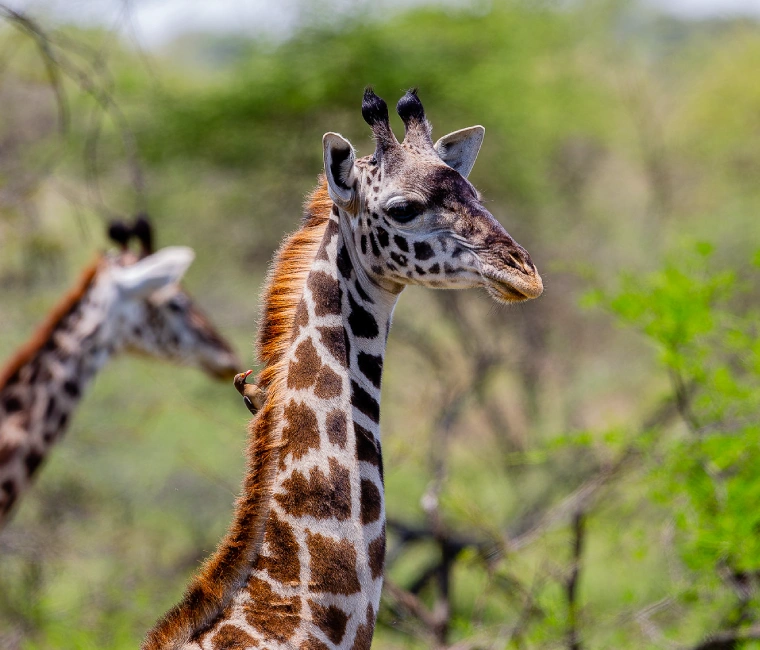
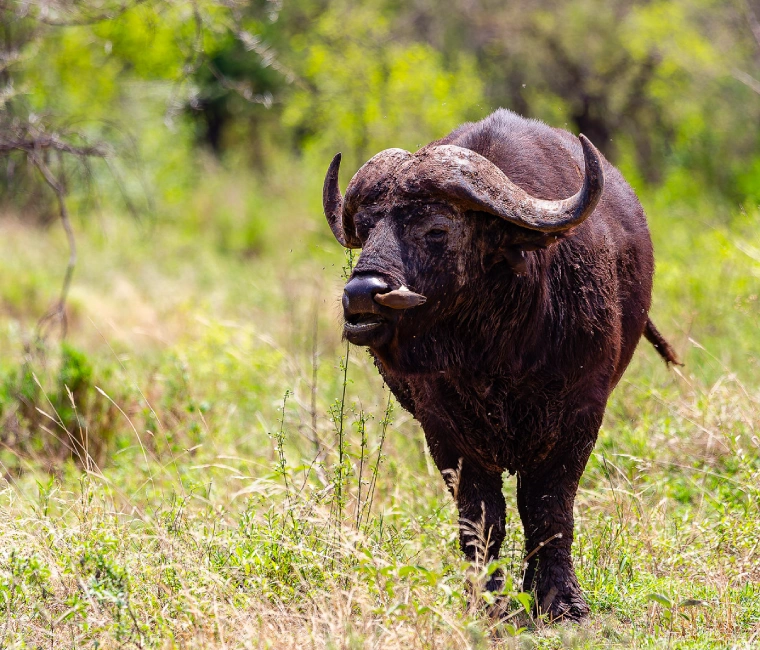
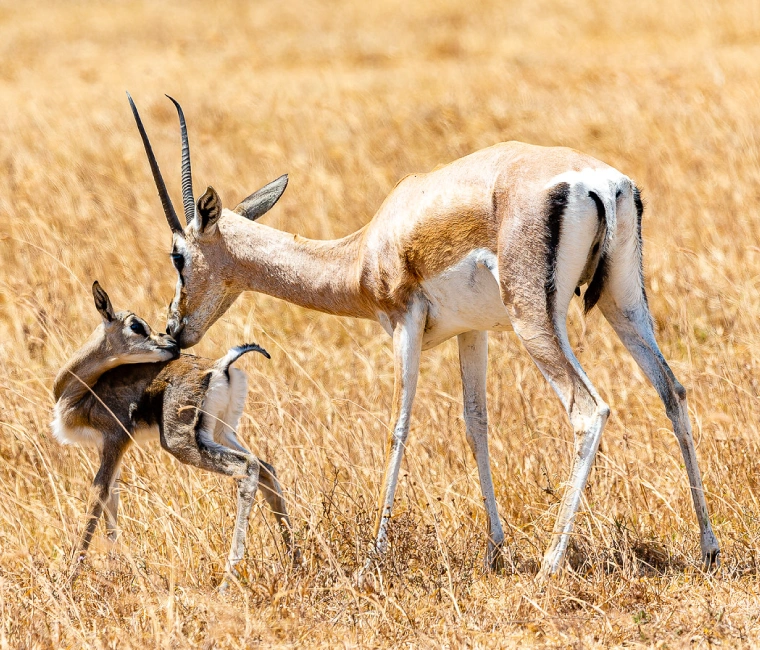
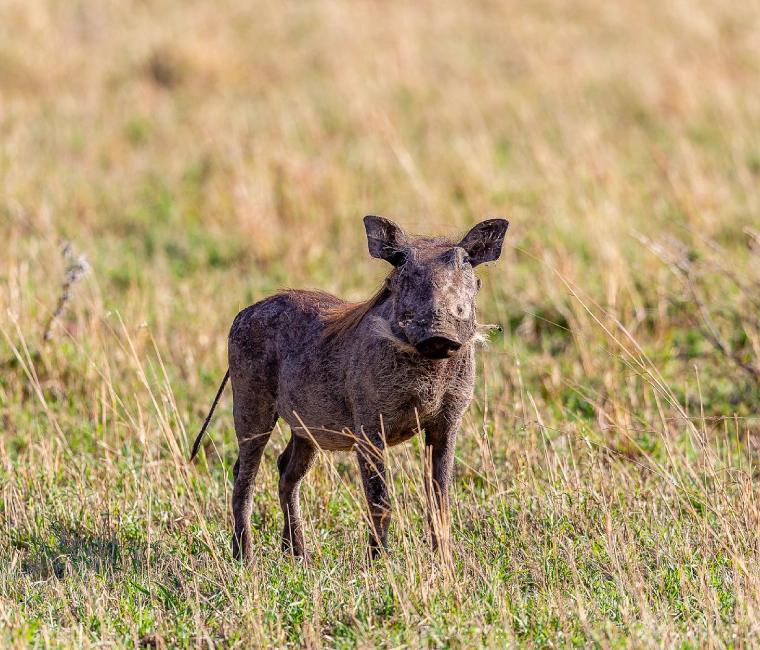
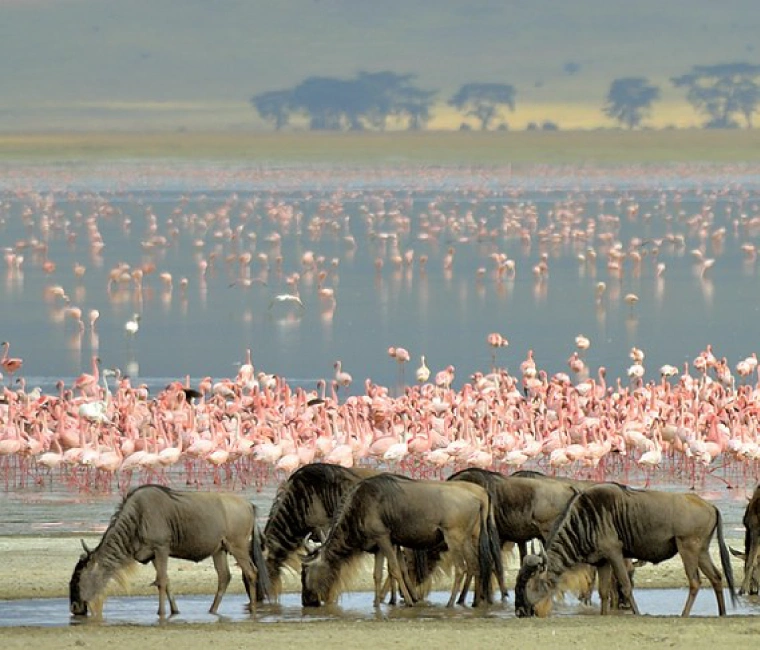
Whether you're dreaming of summiting Kilimanjaro, relaxing on Zanzibar’s beaches, or adding extra safari days, your next adventure awaits.
Go higher than the herds.
Explore on FootWhere the wild meets the sky.
Adventure Awaits on MeruWhere a single day tells a thousand stories
Book a Day AdventureOur team is here to help you make it happen. We offer personalized travel planning services, whether you're looking to embark on a wildlife safari, unwind on a tropical beach, or climb Kilimanjaro.
If you have any questions or would like to work with us on your next adventure, please don't hesitate to get in touch. Simply fill out our enquiry form and we'll get back to you promptly.